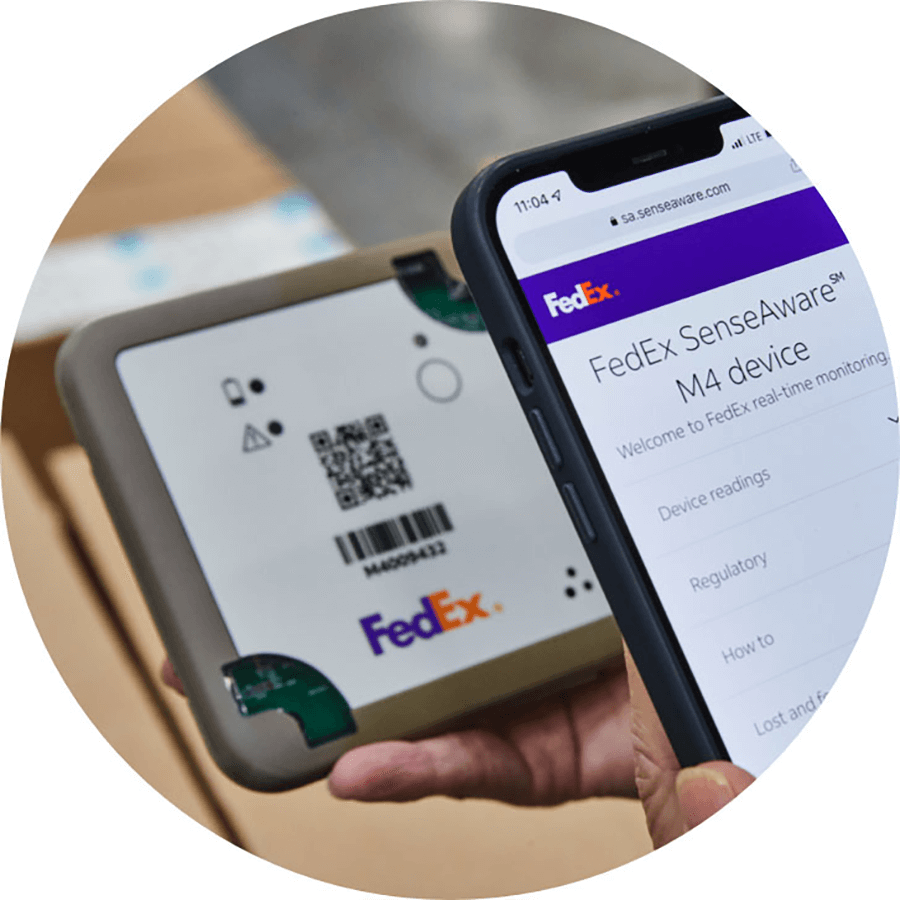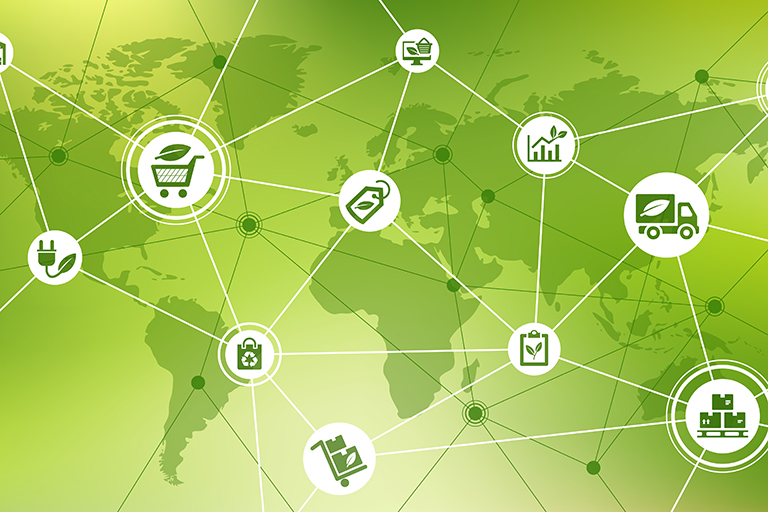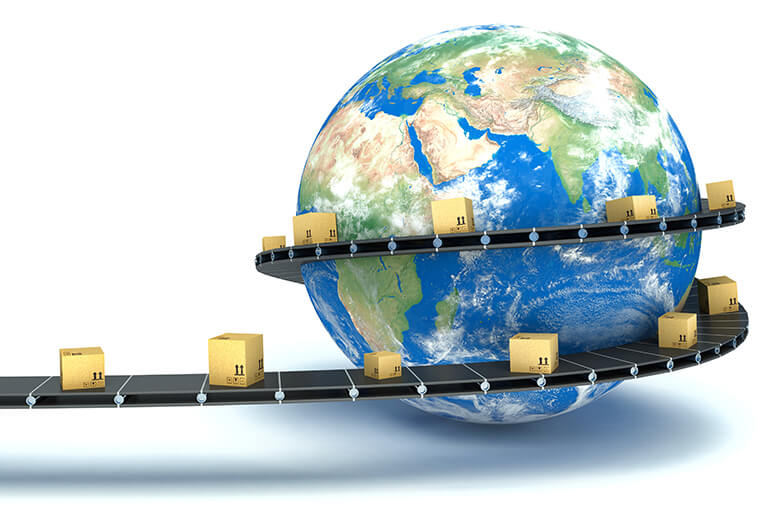How Technology Is Shaping The Future Of Healthcare Logistics
From real-time data to using artificial intelligence to predict problems, our digital technologies help to streamline the process of moving medical supplies and healthcare products.
One of the biggest health news stories in recent months was a revolutionary therapy that completely cleared a young girl's incurable cancer. A fortnight earlier, a new drug was lauded as “beginning of the end” in the decades-long battle against Alzheimer’s.
Not every healthcare breakthrough gets such public attention. Sometimes the most important developments happen behind the scenes. The same is true in the logistics industry, which was largely invisible until the COVID outbreak.
The pandemic brought the world’s reliance on transportation infrastructure into sharp focus. It also showcased the potential of digital technologies to streamline the process of moving lifesaving supplies and delicate pharmaceutical products. They include solutions that leverage real-time data, artificial intelligence (AI) to predict problems like traffic congestion and weather events and trigger proactive measures to prevent delays. Blockchain, which created the crypto-currency industry and is busy redefining financial services, is also making waves in the logistics sphere.
Connectivity is key
Customers shipping sensitive pharmaceutical products are now looking for more information than standard package tracking. Whether their concern is higher security, quality assurance, or simply enhanced visibility of the package journey, obtaining an accurate, real-time picture is becoming essential.
Smart devices that combine advanced sensors with GPS and location-based services are making that possible. They can now instantly tell carriers and their customers where a package is, what local environmental conditions such as temperature and humidity are like, and even issue alerts if something has been dropped or opened.
Not every healthcare breakthrough gets such public attention. Sometimes the most important developments happen behind the scenes. The same is true in the logistics industry, which was largely invisible until the COVID outbreak.
The pandemic brought the world’s reliance on transportation infrastructure into sharp focus. It also showcased the potential of digital technologies to streamline the process of moving lifesaving supplies and delicate pharmaceutical products. They include solutions that leverage real-time data, artificial intelligence (AI) to predict problems like traffic congestion and weather events and trigger proactive measures to prevent delays. Blockchain, which created the crypto-currency industry and is busy redefining financial services, is also making waves in the logistics sphere.
Connectivity is key
Customers shipping sensitive pharmaceutical products are now looking for more information than standard package tracking. Whether their concern is higher security, quality assurance, or simply enhanced visibility of the package journey, obtaining an accurate, real-time picture is becoming essential.
Smart devices that combine advanced sensors with GPS and location-based services are making that possible. They can now instantly tell carriers and their customers where a package is, what local environmental conditions such as temperature and humidity are like, and even issue alerts if something has been dropped or opened.

Developed by our healthcare team, FedEx SenseAware uses a multi-sensor device, typically placed inside packages, pallets, trailers and warehouses. It collects real-time data from the moment a shipment is packed to the moment it’s delivered. That kind of detail is essential for pharmaceutical firms with strict quality, security and compliance requirements.
Perhaps more importantly, SenseAware allows the data to be shared dynamically in real-time via a secure web account. For instance, a hospital could track urgently needed packages right to its front door, allowing doctors to organize preparations and time medical procedures almost to the minute.
Ensuring understanding
Taking action in real-time makes an immediate difference. But using data pre-emptively opens up even more possibilities, allowing logistics carriers to analyze data to identify trends, predict issues and actively avoid potential pitfalls before they have a chance to become a problem.
That’s exactly what we are focusing on. Throughout the pandemic, we leveraged FedEx Surround, our customer-facing solution, to monitor vaccine transportation. In addition to giving customers more visibility into delivery lead times, warehouse inventory levels and more across the whole network, this approach has also helped us to identify specific opportunities to streamline shipping and improve the experience for customers.
Perhaps more importantly, SenseAware allows the data to be shared dynamically in real-time via a secure web account. For instance, a hospital could track urgently needed packages right to its front door, allowing doctors to organize preparations and time medical procedures almost to the minute.
Ensuring understanding
Taking action in real-time makes an immediate difference. But using data pre-emptively opens up even more possibilities, allowing logistics carriers to analyze data to identify trends, predict issues and actively avoid potential pitfalls before they have a chance to become a problem.
That’s exactly what we are focusing on. Throughout the pandemic, we leveraged FedEx Surround, our customer-facing solution, to monitor vaccine transportation. In addition to giving customers more visibility into delivery lead times, warehouse inventory levels and more across the whole network, this approach has also helped us to identify specific opportunities to streamline shipping and improve the experience for customers.

Enabling efficiency, increasing transparency and trust
As groundbreaking as these technologies undoubtedly are, they’re really just scratching the surface. Sensors already capture and upload operational data minute-by-minute. Now, imagine if that information was also uploaded to a blockchain that guarantees data cannot be changed or manipulated.
According to Deloitte, the promise of blockchain has widespread implications for stakeholders across the healthcare ecosystem. Not only in securing patient data, but in improving efficiency and supporting better health outcomes for patients.
The decentralized nature of blockchain also makes offering full transparency in the shipping process a realistic possibility. That, opens the door for even more innovations such as speeding up cross-border transportation, tackling security issues like digital fraud, and providing a common language to interconnect the systems of different healthcare organizations and supporting industries.
Although logistics technology might not make the headlines this year, it will certainly be making a major difference across the entire healthcare spectrum. The result will be a stronger and more resilient ecosystem that offers significant advantages – not only for the organizations using the platform, but for the people they serve.
Want to learn more about how FedEx provides logistics solutions to the Healthcare industry? Head on over to our Business Insights page.
A version of this article first appeared in BioSpectrum Asia on July 17, 2023.
As groundbreaking as these technologies undoubtedly are, they’re really just scratching the surface. Sensors already capture and upload operational data minute-by-minute. Now, imagine if that information was also uploaded to a blockchain that guarantees data cannot be changed or manipulated.
According to Deloitte, the promise of blockchain has widespread implications for stakeholders across the healthcare ecosystem. Not only in securing patient data, but in improving efficiency and supporting better health outcomes for patients.
The decentralized nature of blockchain also makes offering full transparency in the shipping process a realistic possibility. That, opens the door for even more innovations such as speeding up cross-border transportation, tackling security issues like digital fraud, and providing a common language to interconnect the systems of different healthcare organizations and supporting industries.
Although logistics technology might not make the headlines this year, it will certainly be making a major difference across the entire healthcare spectrum. The result will be a stronger and more resilient ecosystem that offers significant advantages – not only for the organizations using the platform, but for the people they serve.
Want to learn more about how FedEx provides logistics solutions to the Healthcare industry? Head on over to our Business Insights page.
A version of this article first appeared in BioSpectrum Asia on July 17, 2023.
***



















 The Latest
The Latest